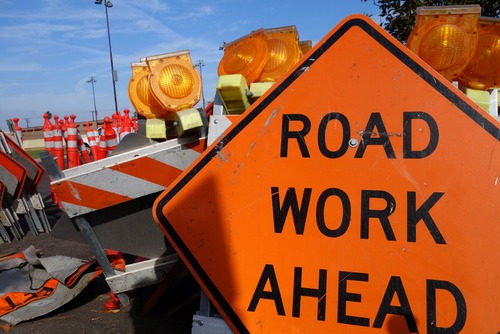
U.S. Reps. Conor Lamb (D-PA), Bob Gibbs (R-OH) and Salud Carbajal (D-CA) introduced bipartisan legislation to authorize an additional $18 billion in emergency funding for state Departments of Transportation (DOTs).
The legislation, the “Providing Assistance for Vital Enhancements (PAVE) Act,” H.R. 3201, would make up the estimated $28 billion budgetary shortfall the American Association of State Highway and Transportation Officials (AASHTO) said state DOTs will face between FY 2020 and 2024.
“Too many critical infrastructure projects in Pennsylvania have been delayed or cancelled due to the COVID-19 pandemic,” Lamb said. “Congress must act now to ensure these stalled transportation projects can get back on track and keep workers on the job.”
In December, Congress passed an omnibus spending act that provided state DOTs with $10 billion. This would be in addition to those funds, the lawmakers said. In April, Lamb penned a bipartisan letter to House and Senate leaders, signed by 50 other members of Congress from both sides of the aisle, asking for additional funding for the state DOTs.
“The Pennsylvania Department of Transportation (PennDOT) cancelled or postponed approximately $600 million in bids because of the COVID-19 pandemic,” the letter said. “In Rep. Lamb’s district alone, this meant the cancellation of construction of a bridge ramp, pavement work, and bike and pedestrian pathways. PennDOT projects continued shortfalls well into 2021. They have already provided us with a list of the next slate of projects they will have to cancel if we do not act. These cancellations have led to lost construction jobs, held by union crews earning the prevailing wage, at a time when so many Americans are struggling to hold on to gainful employment and make ends meet for their families. Left without needed support, PennDOT has also announced it will resort to tolling additional bridges, because they have no other way to fund desperately needed repairs.”
The letter said that many other states face similar situations.
“Other state DOTs report similar problems. For example, the Ohio Department of Transportation (ODOT) has reported significant revenue losses due to lower gasoline and diesel sales since the COVID-19 pandemic began,” the letter said. “In FY2020, ODOT reported a $239 million revenue loss and projects an additional $300 million loss by June 2021. These significant losses have an immediate impact on the state of Ohio. In California, the COVID-19 pandemic has led to dramatic reductions in travel across the country and the state, and they are projecting a loss of $1.5 billion through 2024-25. This situation means lost safety and road improvements and increased costs for constituents.”
In March, the American Society of Civil Engineers issued its 2021 Report Card for America’s Infrastructure and gave the country a C- grade, with roads getting a D.
Gibbs said it was time to address the state of disrepair the country’s roads are in.
“The coronavirus pandemic severely reduced revenue streams for state transportation agencies, showing a clear need to support funding gaps for what everyone can agree is truly essential infrastructure. Because states fund their transportation agencies through fuel taxes and tolls, the funding shortage has disproportionately affected those agencies. Now that we are returning to normal, and surface transportation traffic is returning to pre-coronavirus levels, it is important we address this gap. The PAVE Act ensures important projects are completed with fewer delays, keeps our major roadways safe, and workers on the job,” Gibbs said.
The legislation is supported by the American Society of Civil Engineers (ASCE), the National Stone, Sand and Gravel Association (NSSGA), the American Highway Users Alliance and the Constructors Association of Western Pennsylvania (CAWP).
“The PAVE Act ensures state DOTs will have the funds necessary to continue their local projects, many of which were delayed or suspended altogether due to the pandemic’s economic impact on their dedicated revenue streams,” said Michele Stanley, vice president of Government and Regulatory Affairs at the NSSGA. “While we appreciate the $10 billion secured last Congress for state DOTs, that is considerably short of what these agencies will absorb in the coming years as driving habits will permanently change for millions of Americans. These changes will directly impact statewide budgets for critical surface projects and jeopardize much-needed enhancements to our network of roads, highways and bridges,” Stanley added.